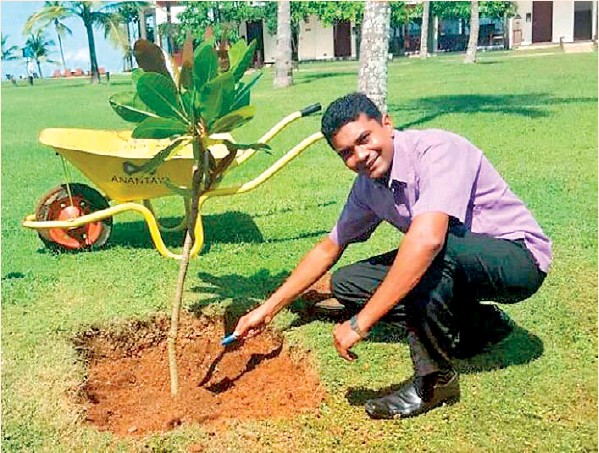
How Climate Change Affects Ocean’s Oxygen Level
The continues global warming due to climate change has been known to take its toll to Arctic, melting ice caps at an increased rate, but a new study suggests that the warming climate may be sapping considerably amounts of oxygen from the ocean.

(Photo : Lam Yik Fei/Getty Images)
According to the study published in the journalProceedings of the Royal Society B, scientist have long known that the warming climate can sap oxygen from the ocean, but they have discovered that a considerable amount of oxygen reduction in some oceans are already discernable, and by 2030 and 204 the loss of oxygen level across large oceans around the world will become more apparent.
With the reduction of the ocean’s oxygen level, marine species such as fishes, crabs and squids will have more difficulty of breathing, which can result to the sudden death and development of larger dead zones where no marine life can live.
“Loss of oxygen in the ocean is one of the serious side effects of a warming atmosphere, and a major threat to marine life,” said NCAR scientist Matthew Long, lead author of the study, said in a statement.
If the atmosphere becomes warmer than usual, oceans ability to draw oxygen from the atmosphere will be inhibited leaving it dependent to its other source of oxygen-the photosynthesizing phytoplankton.
In order to have a better grasp in the natural heating and cooling cycles and complex systems of currents and upwelling of oceans, researchers utilized the National Center for Atmospheric Research’s (NCAR) Community Earth System Model. They ran the model multiples times for the years 1920 through 2100. The researchers accounted global warming by making slight manipulations in air temperature.
After running the model, researchers identified that the reduction of oxygen in the ocean that can be attributed to global warming is apparent in 2030.
“Since oxygen concentrations in the ocean naturally vary depending on variations in winds and temperature at the surface, it’s been challenging to attribute any deoxygenation to climate change. This new study tells us when we can expect the impact from climate change to overwhelm the natural variability,” Long concluded.
(Source : 29/04/2016 Nature World News http://www.natureworldnews.com/articles/21285/20160428/climate-change-affects-ocean-s-oxygen-level.htm)

Anantaya launches green campaign
The Anantaya Resort chain of Laugfs Leisure Limited has yet again embarked on another green i nitiative as part of its sustainability efforts.
Renowned for its ‘eco luxury’ concept, Anantaya recently launched a tree planting drive at its Chilaw resort, as part of a broader campaign to strengthen its commitment towards the environment and community within which it operates. The initial tree planting drive took place along the road leading up to the Chilaw resort premises, adding a fresh touch of greenery to the surroundings. This initiative will be also rolled out at the newly built Anantaya Resort & Spa in Pasikudah, which is expected to be launched soon.
Anantaya will also be one of the first hotels to initiate eco tours in Sri Lanka, deploying eco-friendly vehicles consisting of electric and hybrid vehicles for excursions. Its resort in Chilaw will soon be geared to offer its guests with visits to the Anawilundawa Bird Sanctuary and Wilpattu National Park, both located in close proximity to the resort, in state-of-the-art electric sport utility vehicles (SUVS). Its environmentally friendly vehicle fleet will also be utilized for airport pickups and drops, as well as daily travel needs of its guests.
“Today environment concerns are mounting beyond imagination, with many adverse effects of environmental pollution felt all over the world. Present-day travellers are very much concerned about their environmental footprint through various product and service associations,” remarked Laugfs Leisure CEO Roshan R. Perera.
“Laugfs’ commitment to a sustainable future is ingrained in not just our approach to business but in also how we do business. The Anantaya Resort chain has also been following this philosophy from day one. Our ‘eco luxury’ concept at Anantaya Chilaw is a good example of this,” he further added.
The hotel architecture and landscape areas of Anantaya Resort & Spa i n Chilaw have been designed t o preserve t he surrounding natural environment, striking a fine balance between eco-friendliness and luxury. Many energy saving and conservation measures have been built into the design of the resort, with careful consideration given to functional details such as the type of air conditioning used, installation of solar panels wherever possible, use of natural light for public spaces and recycling of treated sewerage water for irrigation. This has helped Anantaya to achieve substantial savings in energy and water management, while preserving the natural beauty of the area.
The Anantaya luxury resort chain is owned and managed by Laugfs Leisure Limited, a subsidiary of Laugfs Gas PLC.
Source : 29-04-2016 Daily Mirror (Sri Lanka)



